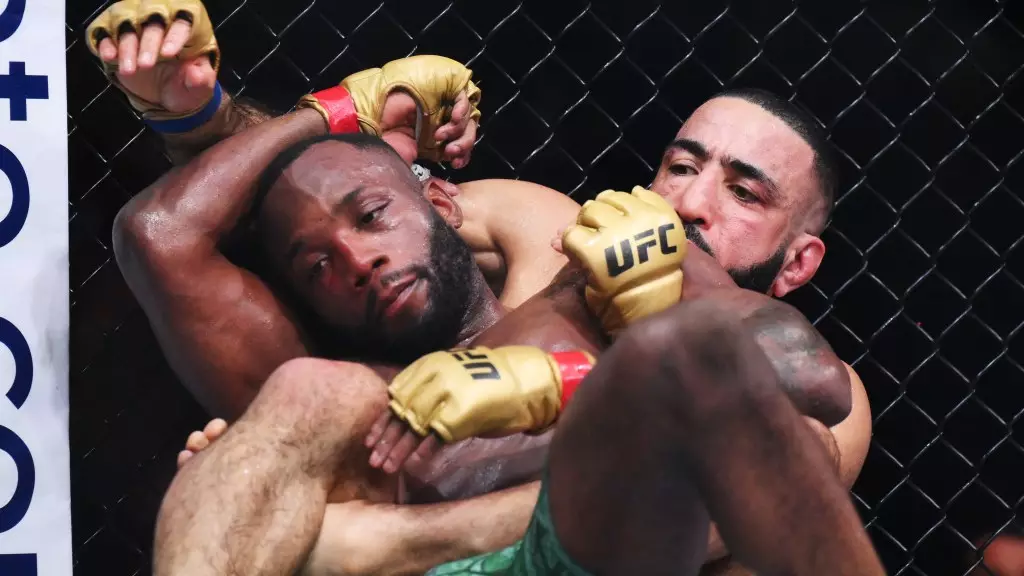Leon Edwards’ recent foray into the world of mixed martial arts hit an unexpected pitfall when he faced Belal Muhammad at UFC 304, where he lost his welterweight championship. Many analysts and fans alike recognize that the fight showcased only a fraction of Edwards’ true potential. Head coach Dave Lovell expressed this sentiment vehemently, indicating that external factors significantly influenced the bout. The complaint about fighting in the early hours of the morning in Manchester, specifically catering to the U.S. pay-per-view schedule, raises questions about athlete welfare and performance standards in the UFC.
It’s not merely a physical contest; a fighter’s mental state, physical readiness, and environmental conditions intertwine to create the optimal performance context. Edwards has faced many challenges in his career, but having to perform at such an unconventional hour presented a unique hurdle that few athletes can adequately prepare for. This is not an excuse for underperformance but rather an examination of the situational adversity that can alter outcomes in the high-stakes world of combat sports.
The Aftermath of the Loss
Edwards referred to the bout as a bitter experience, underscoring that the decision was deeply unsatisfactory, not just for him but for those who expect more from a fighter of his caliber. Lovell weighed in, revealing that he believed Edwards only showcased a fraction of his abilities on that fateful night. Such a stinging critique speaks volumes; it isn’t just about losing a title; it’s about a fighter’s sense of identity, skill, and acknowledgment from fans and peers. This situation is made even more complex by the fact that Edwards was subjected to a formidable opponent in Belal Muhammad, who capitalized on a lucky opportunity that arose due to Edwards’ uncharacteristic struggles.
However, the fight did not render Edwards a defeated fighter; it merely acted as a catalyst for reflection and revitalization. Lovell is adamant that Edwards will learn from this experience. The recognition of factors beyond his control and their impact on performance will shape his response within the octagon moving forward.
Looking Ahead: The Road to Redemption
With a scheduled matchup against Sean Brady set for UFC Fight Night 255, Edwards has a ripe opportunity to showcase a revamped and re-energized fighting spirit. This fight is not just about reclaiming his standing in the welterweight ranks; it serves as a pivotal moment for Edwards to reinforce his identity as a title contender. Lovell affirms that this fight stands as a critical juncture for Edwards, emphasizing that fans are all too aware of his capabilities—an entirely different fighter who is prepared to embrace the challenges ahead.
Factors are not merely attributed to the bout with Muhammad; rather, they become integral lessons as Edwards moves towards this next challenge. The ability to focus on personal growth, the intricate mental preparation, and the reclamation of performance standards will factor significantly into his approach against Brady. Winning against Brady is as much about strategy as it is about restoring belief—both in himself and among fans who have steadfastly supported him through ups and downs.
A Unique Perspective on the Bell Tolls
As Lovell highlighted, athletes are often trapped in a system that prioritizes ratings and pay-per-view schedules over their individual wellness. It brings forth a critical examination of how promotions set schedules and matchups—essentially putting financial gain over athletic integrity. Edwards’ situation serves as a sobering reminder that fights are not held in a vacuum, and each bout carries the weight of preparation, timing, and context.
Moreover, the competitive landscape in the welterweight division remains fraught with its own pressures and unpredictability. Each fighter seems to fight not just to claim victory but to maintain their legacy—a reputation that can be forged and tarnished in the span of a single night. For Edwards, this journey back to prominence is not just about skills but also about psychological resilience. One platform stands to showcase whether he can navigate beyond that early morning setback and enhance his legacy in MMA history.
This chapter in Edwards’ professional life paints a vivid picture of the trials athletes face, extending beyond mere competition. It serves as a reminder of the human experience within the sport, encapsulating growth, failure, and the provocative journey toward redemption.

